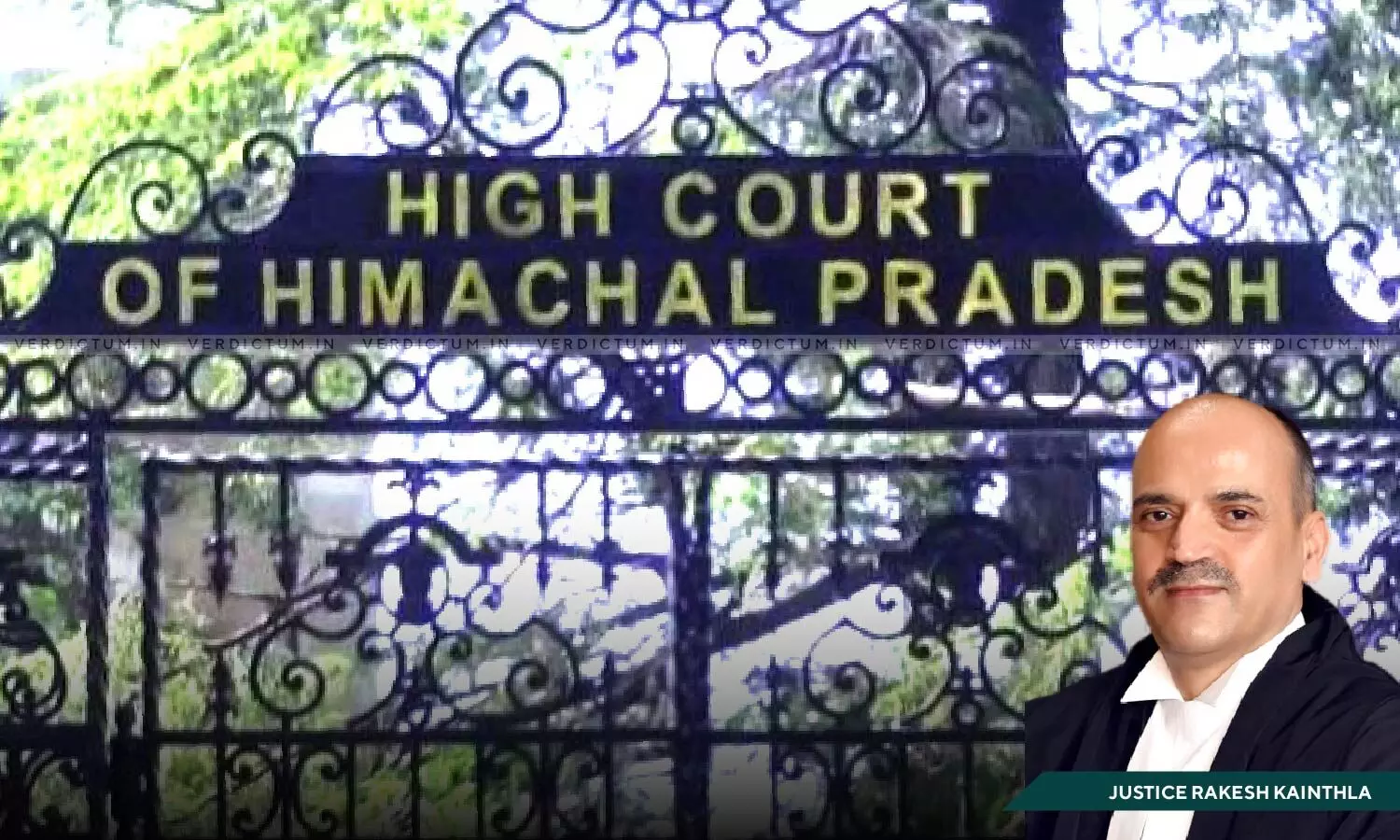
‘Mini-Trial’ To Determine If Allegation Constitutes An Offence Cannot Be Conducted U/S 482 CrPC: Himachal Pradesh HC
 |
|The Himachal Pradesh High Court reiterated that High Courts have the authority under Section 482 Cr.P.C. to quash an FIR and to prevent the abuse of legal process, but it cannot use this power to conduct a mini-trial to arrive at such findings.
A Single Bench of Justice Rakesh Kainthla observed, “power under Section 482 of Cr.P.C. can be exercised to prevent the abuse of process or secure the ends of justice. The Court can quash the F.I.R. if the allegations do not constitute an offence or make out a case against the accused. However, it is not permissible for it to conduct a mini-trial to arrive at such findings.”
Advocate Kush Sharma represented the petitioners, while AAG Jitender Sharma appeared for the respondents.
The Husband filed a complaint against his wife, the accused, under IPC Sections 420, 120-B, 406, 407, 379, and 427. The complaint alleged that the wife conspired with her family and took away gold and other valuable articles which belonged to the husband and his family. The trial court issued summons to the wife for the commission of offences punishable under Sections 379 and 120-B of IPC.
The wife filed a petition before the High Court to quash the complaint and the summoning order on the assertion that the allegations in the complaint did not show the commission of any cognizable offence.
The wife argued that she had filed an FIR regarding the demand for dowry and harassment. The complaint, thus filed by the husband, was a counterblast.
The Court noted, “It was specifically stated in the complaint that the accused wife had taken the gold ornaments and cash worth ₹15.00 lacs in connivance with her parents. These allegations clearly show the commission of offences punishable under Sections 379 and 120B of IPC at this stage.”
The High Court relied on the Supreme Court’s decision in State of Maharashtra v. Maroti, (2023) 4 SCC 298 where it was held that “High Court exercising the power under Section 482 of Cr.P.C. cannot examine the truthfulness, sufficiency and admissibility of the evidence.”
The Court concluded that “the present matter is not such where the extraordinary power under Section 482 of Cr.P.C. is to be exercised” and dismissed the petition.
Cause Title: Abhilasha Sharma & Ors v. State of H.P. & Ors.